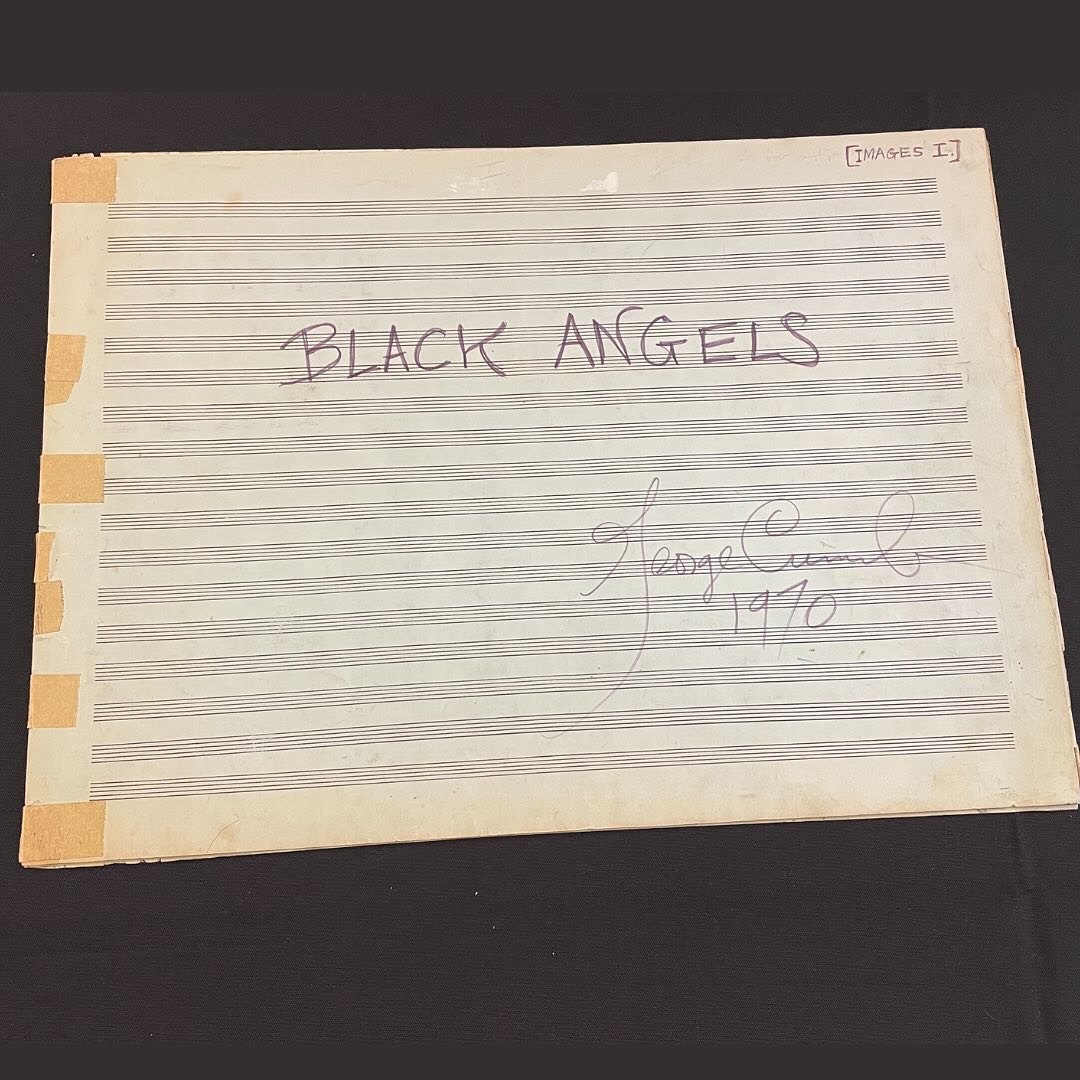Congress acquires Kronos
NewsThe Library of Congress has taken possession of the archive of the Kronos Quartet.
It makes sense. Kronos has premiered more new music than any other US ensemble in the past half century – much of it by American composers.
“Kronos Quartet’s impact on contemporary music is hard to overstate,” said Susan H. Vita, chief of the Library’s Music Division. “It is ideal for the quartet’s legacy as cutting-edge multidisciplinary artists and commissioners of living composers to be preserved here at the Library of Congress, an institution which itself plays a role in the creation of new music and which has long been a preeminent international destination for the living string quartet tradition.”
Pictured: Kronos’ breakthrough work from 1970






But of course “Black Angels” was premiered by the Stanley Quartet 1970, whilst the New
York String Quartet (Paul Zukofsky, Romuald Teco, Timothy Eddy, and Jean Dupouy) made the first commercial recording of the piece in 1971. The piece inspired Harrington to form Kronos.
Picture: ‘Black Angels’ by George Crumb. Considered an ‘iconic piece’ for the string quartet combination of four well-balanced voices.
What are ‘black angels’? It’s mostly known, if known at all, as the name of a ‘psychedelic rock band’.
Crumb does not particularly sound like such band:
https://www.youtube.com/watch?v=etHtCVeU4-I&t=20s
But the notion stems from occultism, the flirt with the satanic, as can often be found in ‘heavy metal’ (result of juvenile rebellion against nearing adulthood). In Crumb’s work one can hear a scrap of the Dies Irae melody, and a bit from Schubert’s ‘Death and the Maiden’ quartet. Etc. etc….
The nihislistic, and hence satanic, is part of modernist aesthetic, since according to theology ‘satan’ is negation, destruction, absence, emptiness, nihilism. The demonic has a certain attractiveness within modernism, because it is seen as an effective instrument of demolishing existing order, i.e. tradition, nature, hierarchy, authority, etc. The Kronos Quartet has greatly contributed to the great liberation of music in the last century.
It is to be expected that, far into the future when part of humanity has recovered from the great denials of the 20th century, some people with nothing else on their hands will dig-out the Kronos Archive from the parts of the Library of Congress still in function, and be puzzled what drove these people to fight against something that never threatened them in the first place.
If memory serves, the title Black Angels originally alluded “to the charred bodies of Vietnamese children, innocent victims of aerial bombardment with Napalm.” A renowned Puertorrican artist, Francisco Bueso, sculpted a powerful and controversial bronze artwork, suggesting the horrible effects of Napalm on a surrealist human torso. The sculpture dates from the same time as “Black Angels” and I wonder if Mr. Bueso’s artwork could have been inspired by Mr. Crumb’s. (At the 1970 art show in San Juan where Mr. Bueso’s piece was unveiled, my mother, a Registered Nurse, had a really hard time explaining to his eldest 9- year-old son what Napalm was and its effects.) Please, I am only sharing historical information, not making a political statement. My father, and very many beloved friends, served or serve proudly in the U.S. Air Force.
Even more awful story…… it would not be surprising if also napalm would have inspired Mr Crumb.
My point exactly, Mr. Borstlap. I believe my sources are Eric Saltzman’s “Music in the Twentieth Century” and Grout’s, Pallisca’s and Burkholder’s “A History of Western Music.”
It is a mistake to so broadly and simplistically conflate stylistic trends with historical conditions. Hilter, Stalin, Mao, the Holocaust, the over 4 million killed by the USA’s illegal, unjustified wars since WWII. Naturally artists respond. Black Angels was in protest of the Vietnam War. It is a statement *against* evil, something artists do and that can be very meaningful. Crumb was deeply immersed in the literature of classical music and thought all composers should be. I could never name a work of classical music he couldn’t play by memory at the piano. His music is imbued with that profound knowledge.
That may well be, but why did JS Bach not write more in the minor key after the devastating 30 years War which killed some one third of the population? And why do we only have one single aria in Le Nozze di Figaro referring to an ideal of freedom while a most disruptive revolution was going-on in France? Is there an obligation for artists to reflect political misery of their time?
Only if whatever kind of personal experience is transcended into something universal, the art will remain accessible to later generations.
Keep grinding that theme and maybe, someday, you to will receive recognition, though not for composition.
That’s what I think so often. These premieres are simply not enough! And pretty boring as well, if you ask me.
Sally
“Why has modernist classical/art music never attracted anything beyond a microscopic audience?” “Why don’t prominent conductors/soloists program more modern/contemporary works?” Just listen to the Kronos Quartet. No further explanation required. If nothing else, they succeeded in collecting a mighty compendium cataloging the screeching death throes of classical music as a creative, as opposed to merely interpretive and recreative, art.
Ask Helpsalot for support!
Sally